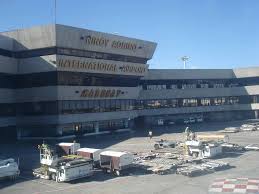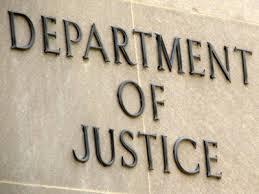The Aviation Industry and Corruption
 DOJ and the SEC have quietly (or maybe not so quietly) set an enforcement tone in the aviation industry. When you look over the last few years, we have several enforcement actions either pending or resolved involving the aviation industry.
DOJ and the SEC have quietly (or maybe not so quietly) set an enforcement tone in the aviation industry. When you look over the last few years, we have several enforcement actions either pending or resolved involving the aviation industry.
The focus on the aviation industry is not limited to the United States. The Serious Fraud Office and German prosecutors have launched investigations of Airbus. South Korean prosecutors investigated Bombardier and decided not to press charges.
The most significant ongoing investigation is focused on Embraer. The DOJ/SEC investigation was focusing on potential bribery in Brazil, the Dominican Republic, Saudi Arabia and Romania. Last year, Brazil announced criminal charges against eight Embraer officials for bribery relating to the Dominican Republic.
The US and Brazil investigations are still pending. I expect they will be resolved later this year but the timing may be more uncertain because of the role that Brazil law enforcement may be playing.
Looking past these companies, however, there are a string of interesting settlements involving the aviation industry, including BizJet, Nordam, and Dallas Airmotive. BizJet was the first case to fall, and included a number of individuals, several of whom clearly cooperated in the investigation of others by wearing wires and recording telephone calls.
As a result of this cooperation and inside information on the industry, I suspect that DOJ was able to build cases against, or at least identify other potential companies for investigation.
In March 2012, BizJet agreed to pay an $11.8 million criminal fine to resolve FCPA violations in Latin America. BizJet is a subsidiary of Lufthansa Technik, and provides aircraft maintenance, repair and overhaul services. BizJet bribed officials in Mexico and Panama.
In 2013, the government unsealed indictments against two BizJet executives, Peter DuBois and Neal Uhl, who plead guilty and were sentenced to probation and home detention. They earned lower sentences by cooperating with the government by recording meetings and telephone calls, and providing helpful information and potential testimony.
Several months later, Nordam Group agreed to pay $2 million to resolve FCPA violations in China. Nordam bribed China Airlines officials to earn valuable contracts to overhaul Boeing 747 thrust reversers.
In July 2014, the former CEO of BizJet plead guilty conspiracy to bribe government officials in Mexico and Panama. He is awaiting sentencing.
In December 2014, Dallas Airmotive, an aircraft engine, maintenance and repair firm, agreed to pay a $14 million criminal penalty for bribing air force officials in Brazil, Argentina and Peru.
DOJ and the SEC have developed a working base of knowledge and understanding of the aviation industry. It has been developed institutionally through the prosecution of several companies and individuals.
The corruption risks in the aviation industry are significant. Civil aviation is an industry with extensive government control of assets (e.g. airports) and regulation. In addition, foreign military contracts are very lucrative for private aviation companies.
The industry itself includes former military officials with extensive and deep relationships with current foreign military  officials. As a result, the risks for large and small companies in the aviation industry are real and significant.
officials. As a result, the risks for large and small companies in the aviation industry are real and significant.
This risk is amplified by DOJ’s overall knowledge of how sales and contracts are awarded. DOJ’s ability to bring cases in this industry reflects its expertise and ability to rely on proactive techniques to build cases using established industry players.
Aviation companies have to be mindful of these risks and develop appropriate compliance strategies to respond to these risks.















